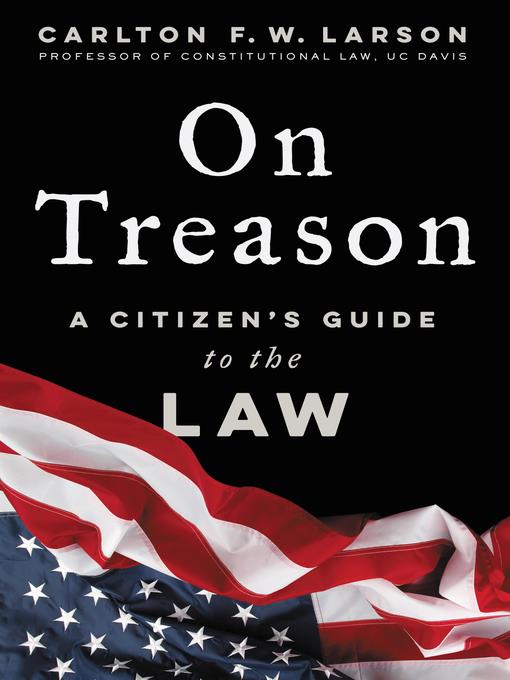
On Treason
A Citizen's Guide to the Law
کتاب های مرتبط
- اطلاعات
- نقد و بررسی
- دیدگاه کاربران
نقد و بررسی

June 8, 2020
UC Davis law professor Larson (The Trials of Allegiance) presents a lucid analysis of the U.S. Constitution’s treason clause and its implications for today’s partisan politics. Despite President Trump’s numerous allegations of treason against congressional Democrats, and vice versa, the constitutional definition of treason is surprisingly narrow, Larson explains, and only applies if the accused traitor is attempting to overthrow the U.S. government. Larson makes good use of historical examples to parse the “controversy, complexity, and difficulty” of prosecuting treason, exploring, for instance, the cases of Confederate leader Jefferson Davis, Revolutionary War turncoat Benedict Arnold, Soviet spies Julius and Ethel Rosenberg, and Jane Fonda, who paid a controversial visit to Hanoi during the Vietnam War. Addressing more contemporary examples, Larson explains why Trump’s public call for Russia to hack the Democratic National Committee’s emails, Edward Snowden’s theft of top-secret NSA documents, and even the hypothetical case of a secretary of state spying for China are not treasonous under the current interpretation of the law. Larson enlivens his case studies with intriguing details and character sketches, and makes legal terminology accessible to lay readers. This well-informed treatise separates partisan rhetoric from prosecutable offense. Agent: Wendy Strothman, Strothman Agency.

July 15, 2020
A law professor delivers a fluent, case-rich examination of the laws governing treason and its punishment. If you are of a certain political bent, it is indisputable that by colluding with Russia (and, apparently, China too), Donald Trump committed traitorous acts. If you are Trump, meanwhile, you fling the word "treason" about with abandon when, say, Democratic representatives do not stand up to applaud you. Neither party interprets the law correctly, writes Larson, a law professor and leading authority on treason. There are technical determinants, one of which is that one must engage in a formal act of war against one's own country, which, as it turns out, is "constitutional quicksand." Trump may clearly take Russia's interests to be his own against those of the nation over which he ostensibly presides, but Russia and the U.S. are not at war--not officially, anyway. What of Jefferson Davis, who waged war on this country? Quicksand again: A prosecuting attorney would have to establish that secession is constitutionally forbidden and then seat a jury that would find the defendant guilty, no easy matter since the crime took place in Virginia. And Jane Fonda, who broadcast anti-war messages from Hanoi? Now the question emerges: Was the U.S. officially at war? Even though by some precedents a formal declaration was not necessary, the government under Nixon decided not to prosecute--perhaps, Larson ventures, because "a prosecution of Fonda risked exposing Nixon's own activities with respect to Vietnam, which were hardly honorable." In the end, writes the author, even though today "many Americans have a powerful desire to define conduct that they find reprehensively disloyal as treason," the law is seldom applied--just once, in fact, over the course of the nation's history--and for very good reason. Though bound up in highly technical legal arguments, Larson examines the notion clearly and accessibly. A book that both clarifies and complicates the laws surrounding treason, which explains why it is so rarely invoked.
COPYRIGHT(2020) Kirkus Reviews, ALL RIGHTS RESERVED.

























دیدگاه کاربران